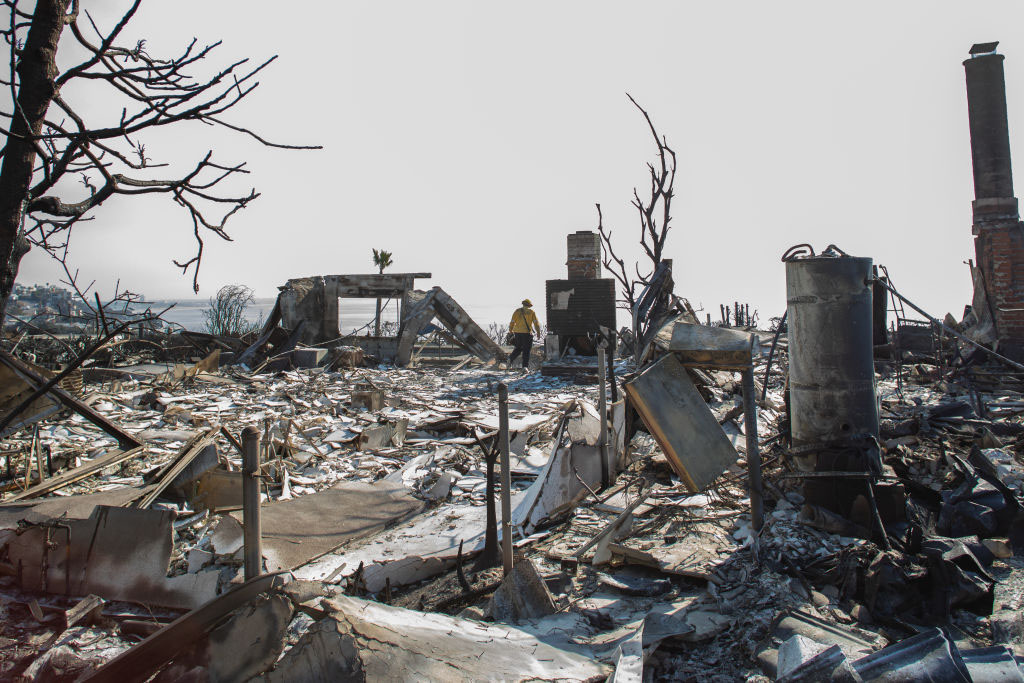Mark Cohen thinks those doomsday scenarios about an impending Southland housing crash miss the mark. And the founder and president of Beverly Hills-based Cohen Financial Group has learned a thing or two about real estate over the last 20 years.
With an MBA from USC and a law degree from Loyola Law School, the 47-year-old mortgage broker helped secure nearly $1.1 billion in home loans last year, making him the No. 1 individual mortgage loan originator in the country, according to Mortgage Originator Magazine.
When not spending time with his three children and wife Laurie, Cohen has been involved in the local Jewish community.
A member of The Jewish Federation of Greater Los Angeles’ Real Estate and Construction Division, Cohen has also played an active role at Sinai Temple for more than two decades. He and his wife have long supported ATID (which translates as future in Hebrew), a Sinai program that trains future Jewish leaders. They also recently contributed funds toward the writing of a new Torah.
The Jewish Journal spoke to Cohen about the recent reversal in the local housing market.
Jewish Journal: Why has the housing market slowed in Southern California?
Mark Cohen: Southern California is a great place to live, which is why so many people want to live here. However, that also means the supply of apartments, houses and condos is limited. Over time, this supply-and-demand situation in housing has pushed prices up dramatically, pricing many people completely out of the market. Added to this are the interest-rate hikes by the Fed. Rates have increased by about 2 1/2 percent over the past few years, and that has made the cost of borrowing more expensive, closing the door on even more potential homeowners.
JJ: If the Fed raises interest rates to keep inflation in check, will that help or hurt the market?
MC: The jury is still out on whether or not the Fed will continue to raise rates. It all depends on whether or not they can keep inflation under control. If there are more rate increases in the near future, they will likely have a negative effect on the market in the short term. However, if the Fed is successful in keeping inflation in check, they can keep the door open for future rate cuts should there be a slowdown in the economy. Recent economic reports are showing that inflation has moderated for the time being, which means the Fed’s tightening cycle may be over. And that would have a positive impact on the real estate market.
JJ: What areas of the Southland are most at risk of having the bottom drop out? Why?
MC: It’s difficult to single out specific areas in Southern California that have the most risk. However, right now, San Diego seems to have an oversupply of new condominiums on the market due to all the speculation that occurred over the past few years. There’s also usually a deeper correction in areas where there has been excess in new construction. Palm Springs is an example of this. On the other side of the coin, the Westside, South Bay and San Fernando Valley will likely fare better during a slowdown because of the lack of new construction, limited supply of homes and desirability.
All in all, Southern California is a great place to live and historically, over time, real estate here has proven to be a great investment.
JJ: Do you anticipate a hard or soft landing locally?
MC: A soft lading will depend on several factors. First, the direction of interest rates will have a big impact, as will the strength of the local economy. As long as jobs are being created and the economy stays at its current growth levels, it’s highly unlikely that we’ll experience a hard landing.
Obviously, the actions by the Fed in the next few months will affect the local real estate market for the foreseeable future.
JJ: How long do you expect the market to remain soft?
MC: It really depends on the economy. If we have continued job creation and continued economic growth, the market will recover more quickly. Fewer jobs created and slower growth will mean a longer slowdown. The real driving force behind the real estate market isn’t interest rates; it’s the economy. That’s because even though fixed-interest rates have risen recently, they are still at manageable levels.
JJ: How is this housing market of today different from the boom-and-bust cycle of the late 1980s and early 1990s?
MC: This is a very different market from the one we saw in the late 1980s or early 1990s, primarily because the Southern California economy is now much more diverse. During that period, the economy here was based on the aerospace, defense and entertainment industries. Today our economy is much more diverse, with financial services, technology, biotechnology and other industries playing major roles on the region’s vitality. A more diverse economy means the chances of a hard economic landing are reduced, and this, in turn, helps to support the housing market.
JJ: What kind of industries might suffer in a soft housing market, and how could that impact the entire local economy?
MC: The real estate industry has a large effect on the Southern California economy, because there are so many people employed in it either directly or indirectly, including lenders, title companies, escrow agents, real estate sales agents, contractors, and developers, This means that a prolonged slowdown would hurt the folks employed in these industries and the overall local economy as well.
JJ: How much do you expect housing in Southern California to drop in the next year? What price ranges will be hit hardest?
MC: I don’t expect prices will fall more than 5 percent to 10 percent from the market highs of a couple years ago, with the hardest hit homes being those in the mid-level price range between $1 million to $3 million.
JJ: What advice would you give to someone who is considering buying or selling a home in Los Angeles?
MC: I’m a big proponent of home ownership. Don’t we all work hard so we can eventually own our own home? My advice is for people to feel comfortable living in a new home for at least five years so interest rates and real-estate-cycle influences are reduced. I don’t think we’re in a market that allows for short-term housing speculation, since the market is extremely volatile.
Jewish Journal September 1, 2006 43
T






















 More news and opinions than at a Shabbat dinner, right in your inbox.
More news and opinions than at a Shabbat dinner, right in your inbox.